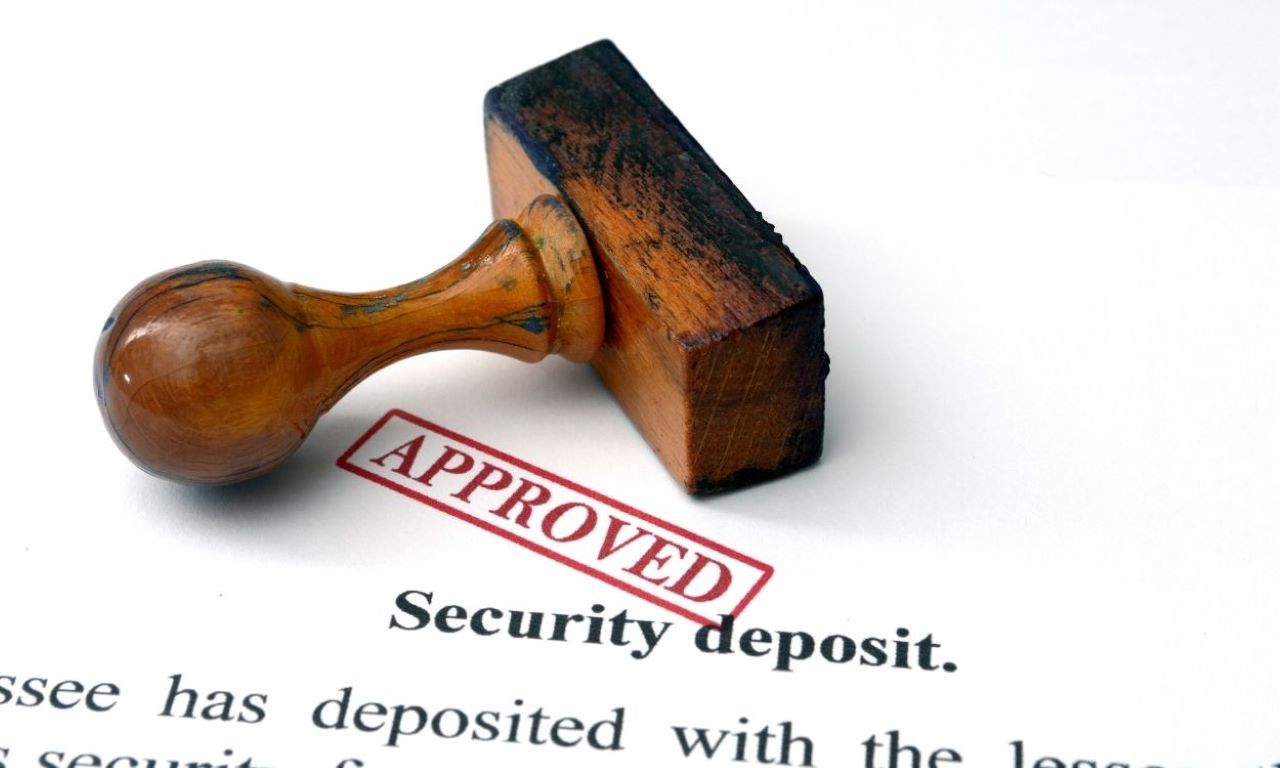Key Takeaways
Security Deposit Limits: North Carolina caps security deposits based on lease length—up to 2 weeks' rent for weekly leases and 1.5 times the monthly rent for monthly leases, with a 2-month rent limit for leases over a month.
Deductions Allowed: Landlords can deduct from the deposit for unpaid rent, utilities, damages beyond normal wear and tear, and early lease termination costs.
Return Deadline: Security deposits must be returned within 30 days of a tenant moving out, with an itemized statement for any deductions.
As a landlord in North Carolina, it’s important that you stay up to date with the state's landlord tenant laws. Among these laws, it is necessary that you familiarize yourself with the security deposit rules and regulations.
Landlords in North Carolina have a right to require tenants to pay a security deposit. As a landlord, this can benefit your bottom line in multiple ways. Among other things, it can help:
Cover Unpaid Utility Bills: Tenants must pay for all utility bills under their name before moving out. If the tenant fails to do this, you can use part or all of their security deposit to pay for the costs.
Cover Excessive Cleaning Costs: One key tenant responsibility is maintaining their rented unit’s cleanliness standards. If the tenant leaves the unit in a dire state of uncleanliness, you can use the deposit to cover professional cleaning services.
Cover Losses in Rent Payments: A lease contractually obligates a tenant to pay rent for the entire lease duration. If the tenant moves out with a rent balance, you can make appropriate deductions from their security deposit.
Cover for Lost Rental Income: Certain situations can arise during a term of a lease that can cost you rental income. For example, if the tenant breaks the lease without a legally justified reason like relocating elsewhere for work. In such a case, you’d be within your rights to make appropriate deductions.
Cover Extensive Property Damage: You can also make security deposit deductions for damages exceeding normal wear and tear. These include chipped countertops, unauthorized paint colors, holes in the walls, and broken tiles.

With that in mind, such rights aren’t without their limits. You must abide by certain obligations when it comes to how you handle the tenant’s security deposit, including what deductions you can make, the deadline for its return, and how much you can charge.
The following article by RedStone Property Management details the important basics of the North Carolina security deposit laws landlords should know about.
Security Deposit Limit
In North Carolina, landlords must abide by a certain limit when charging tenants a security deposit. The specific amount will depend on how long the term of the lease will be.
For leases that run weekly, the maximum security deposit is the equivalent of 2 weeks’ rent. For leases that run monthly, the maximum security deposit is the equivalent of 1.5X the monthly rent. For leases longer than a month, the security deposit is equivalent to 2 months’ rent.
Please note, however, that these rules only apply to landlords renting out whole dwelling units and not individual single rooms in a building.
Pet Deposits
Under North Carolina security deposit laws, landlords can charge a pet deposit. These cannot exceed the maximum limit as previously mentioned. The total security deposit amount must still abide by the state’s maximum limit.
You can, however, charge a monthly pet fee if the terms of the lease allow. Another option would be to charge a non-refundable pet fee that’s separate from the move-in security deposit fee.

Security Deposit Receipt
After collecting a security deposit from a tenant, you must notify them within 30 days of important details, including the name and address of the bank or institution where you’re holding the tenant’s security deposit.
As a landlord in North Carolina, you have two options when it comes to holding a tenant’s security deposit. You can either hold it in a trust account or post it as a surety bond.
If placing it in a trust account, you must ensure the account is in a licensed and state- or federally insured financial institution. If posting it as a surety bond, you must ensure the insurance company is licensed to operate in North Carolina.
Sale of Rental Property
If you sell a property that is occupied by a tenant in North Carolina, you’ll have two options to consider. You could choose to transfer the deposit to the incoming landlord or return it to the tenant, less allowable deductions.
If transferring it to the incoming landlord, you must notify the tenant of the new owner’s name and address. Either way, you’ll have 30 days after selling the property to do so.
Acceptable Deductions
You can make the following deductions from a tenant’s security deposit:
Unpaid rent, utilities, or late fees.
Cost of damage exceeding normal wear and tear.
Damages resulting in early lease termination.
Costs of finding a replacement tenant.
Costs of removing or storing a tenant’s personal belongings after an eviction.
Court costs.

Just like with most states, North Carolina doesn’t limit how much a landlord can charge. The only requirement is that the damages must be appropriate, reasonable, and done in good faith.
Normal Wear and Tear vs. Damage
Normal wear and tear is normal property deterioration. It’s the type of damage that occurs due to normal use of a rental property. This type of damage includes things like lightly scratched glass, loose door handles, lightly dirtied grout, and gently worn carpets.
Excessive damage, on the other hand, refers to the type of damage that exceeds normal wear and tear. It occurs due to a tenant’s recklessness, carelessness, negligence, or intentional damage. Examples include missing fixtures, holes in the wall, broken tiles, holes in the wall, and burned or torn carpet.
Security Deposit as Last Month’s Rent
North Carolina doesn’t forbid tenants from using the security deposit as last month’s rent. That said, this defeats the fundamental purpose of security deposits. As such, you may want to include a provision in the lease agreement that prohibits tenants from doing so.
Returning a Tenant’s Security Deposit
In North Carolina, landlords have up to 30 days after a tenant leaves to return their security deposit, less allowable deductions.
If making deductions, you must provide the tenant with an itemized statement of damages. Then, you must send it to the tenant via mail or hand-delivery no later than 30 days after the tenant moves out.
Conclusion
The North Carolina security deposit laws are necessary for landlords to know. With this article, you now know what you can and cannot do when it comes to handling tenants’ security deposits.
RedStone Property Management is a reliable and professional property management company in Burlington. We can expedite home leasing, handle repairs, and secure dream tenants, among other things. Get in touch to learn more!
Disclaimer: Please note that the information provided in this blog is intended for general guidance and should not be considered as a replacement for professional legal advice. It is important to be aware that laws pertaining to property management may change, rendering this information outdated by the time you read it.






